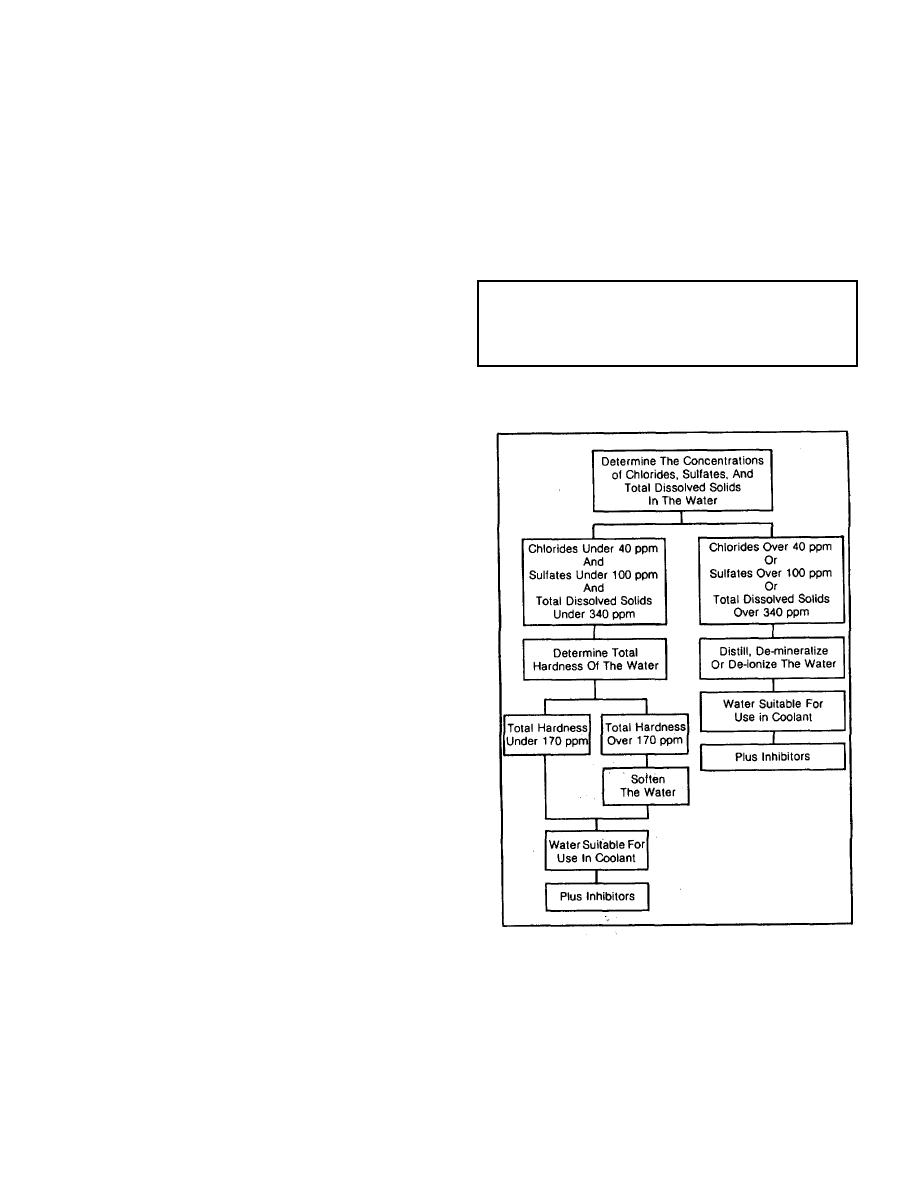
TM 5-3895-359-14&P
ENGINE COOLANT
The coolant provides a medium for heat transfer and
solids.
controls the internal temperature of the engine during
operation. In an engine having proper coolant flow, the
Chlorides and/or sulfates tend to accelerate corrosion,
heat of combustion is conveyed through the cylinder
while hardness (percentage of magnesium and calcium
walls and the cylinder head into the coolant. Without
salts broadly classified as carbonates) causes deposits
adequate coolant, normal heat transfer cannot take
of scale. Total dissolved solids may cause scale
place within the engine, and engine temperature rapidly
deposits, sludge deposits, corrosion or a combination
rises. In general, water containing various materials in
solution is used for this purpose.
PARTS PER
GRAINS PER
MILLION
GALLON
The function of the coolant is basic to the design and to
Chlorides (Maximum)
40
2.5
the successful operation of the engine. Therefore,
Sulfates (Maximum)
100
5.8
coolant must be carefully selected and properly
Total Dissolved Solids (Maximum)
340
20
maintained.
Total Hardness (Maximum)
170
10
COOLANT REQUIREMENTS
TABLE 1
Coolant solutions must meet the following basic
requirements:
1. Provide for adequate heat transfer.
2. Provide a corrosion-resistant environment within the
cooling system.
3. Prevent formation of scale or sludge deposits in the
cooling system.
4. Be compatible with the cooling system hose and seal
materials
5. Provide adequate freeze protection Luring cold
weather operation.
The first four requirements are satisfied by combining a
suitable water with reliable inhibitors. When freeze
protection is required, a solution of suitable water and an
antifreeze containing adequate inhibitors will provide a
satisfactory coolant. Ethylene glycol-based antifreeze is
recommended for use in Detroit Diesel engines.
WATER
Any water, whether of drinking quality or not, will
produce a corrosive environment in the cooling system.
and the mineral content may permit scale deposits to
form on internal cooling system surfaces. Therefore,
water selected as a coolant must he properly treated
with inhibitors to control corrosion and scale deposition.
To determine if a particular water is suitable for use as a
coolant when properly inhibited.
the following
TABLE 2
characteristics must be considered: the concentration of
10-9-13


